-
 Bitcoin
Bitcoin $117700
-1.00% -
 Ethereum
Ethereum $4458
-3.91% -
 XRP
XRP $3.119
0.14% -
 Tether USDt
Tether USDt $1.001
-0.02% -
 BNB
BNB $836.6
-1.56% -
 Solana
Solana $189.5
-3.90% -
 USDC
USDC $0.9998
-0.02% -
 Dogecoin
Dogecoin $0.2335
1.29% -
 Cardano
Cardano $0.9642
1.51% -
 TRON
TRON $0.3539
-1.19% -
 Hyperliquid
Hyperliquid $47.41
-1.84% -
 Chainlink
Chainlink $21.92
-3.28% -
 Stellar
Stellar $0.4286
-0.23% -
 Sui
Sui $3.724
-3.29% -
 Bitcoin Cash
Bitcoin Cash $594.8
-0.78% -
 Ethena USDe
Ethena USDe $1.001
0.04% -
 Hedera
Hedera $0.2501
-2.06% -
 Avalanche
Avalanche $23.96
-4.87% -
 Litecoin
Litecoin $119.0
-2.32% -
 Toncoin
Toncoin $3.473
0.82% -
 UNUS SED LEO
UNUS SED LEO $9.596
0.17% -
 Shiba Inu
Shiba Inu $0.00001301
-0.39% -
 Uniswap
Uniswap $11.03
-0.25% -
 Polkadot
Polkadot $3.935
-2.62% -
 Dai
Dai $1.000
0.01% -
 Bitget Token
Bitget Token $4.564
-1.76% -
 Cronos
Cronos $0.1512
-4.11% -
 Ethena
Ethena $0.7306
-1.09% -
 Pepe
Pepe $0.00001087
-2.68% -
 Aave
Aave $300.2
-4.00%
Is the KYC process of OKX strict?
OKX's KYC stringency varies; it's generally industry-standard but depends on location and trading volume, requiring identity verification and potentially further documentation. Non-compliance limits account functionality.
Mar 15, 2025 at 06:55 am
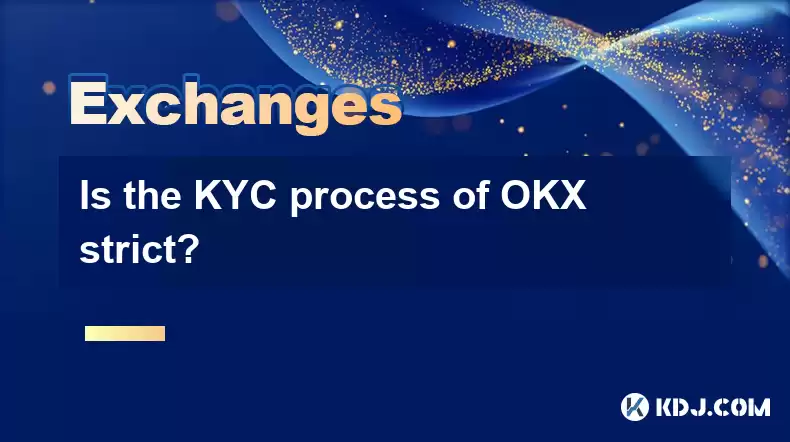
Key Points:
- OKX's KYC process varies in stringency depending on the user's location and trading volume.
- Generally, OKX's KYC requirements are considered to be within the industry standard, although some users report inconsistencies.
- The process involves verifying identity documents and potentially additional information.
- Failure to comply with KYC requirements can result in limitations on account functionality.
- The level of detail required in the KYC process is directly tied to risk mitigation strategies employed by OKX.
Is the KYC process of OKX strict?
The question of whether OKX's KYC (Know Your Customer) process is "strict" is relative. There isn't a universally agreed-upon standard of strictness for KYC in the cryptocurrency industry. OKX, like other exchanges, adjusts its KYC requirements based on several factors. These factors include the user's jurisdiction, trading activity, and the overall risk assessment of the account. A user in a high-risk jurisdiction might encounter a more rigorous KYC process than a user in a jurisdiction deemed lower risk. Similarly, a user trading large volumes of cryptocurrency will likely face more stringent checks than someone conducting smaller trades.
The core of OKX's KYC process involves verifying the user's identity. This typically requires uploading clear images of a government-issued photo ID, such as a passport or driver's license. Often, a proof of address document is also necessary, which might be a utility bill or bank statement. The quality of these documents is crucial; blurry or poorly lit images will often lead to delays or rejections. The platform employs automated systems to verify the authenticity of these documents, often cross-referencing them with external databases.
Beyond the basic identity verification, OKX might request additional information depending on the individual circumstances. This could include proof of income, source of funds, or other documentation to support the user's trading activity. This is especially true for users engaging in high-value transactions or showing patterns suggestive of illicit activities. The platform's aim is to comply with anti-money laundering (AML) regulations, and these extra checks are a key part of that process.
The time it takes to complete the OKX KYC process can vary considerably. Simple verifications might be completed within minutes or hours, while more complex cases could take several days or even weeks. Delays often stem from incomplete or unclear documentation, or from the need for manual review by OKX's compliance team. Users should ensure that all submitted documents are accurate and meet the platform's specified requirements to expedite the process. Clear, high-resolution images are essential.
Failure to successfully complete the KYC process will lead to limitations on the user's account. At a minimum, this could restrict the user's ability to deposit or withdraw funds. In more severe cases, the account might be suspended altogether. OKX, like all reputable exchanges, takes its KYC obligations seriously, and non-compliance can result in serious consequences for the user.
The overall experience of the OKX KYC process is subjective. Some users report a smooth and efficient process, while others describe it as cumbersome or overly complicated. These differences can often be attributed to the factors mentioned earlier: jurisdiction, trading activity, and the specific documentation provided. Inconsistencies in reported experiences highlight the dynamic nature of the process, adapting to individual risk profiles. It’s worth noting that OKX, like other exchanges, regularly updates its policies and procedures, leading to variations in user experiences over time.
The level of detail required in the OKX KYC process is directly proportional to the risk associated with the user's activity. This is a standard practice in the financial industry, and it is crucial for preventing money laundering and other illicit activities. High-volume traders, users from high-risk jurisdictions, and those exhibiting unusual trading patterns are more likely to face more rigorous scrutiny.
OKX's KYC process is designed to comply with international regulations and best practices. The platform actively works to balance the need for security and compliance with the user experience. The platform's commitment to maintaining a secure and compliant trading environment necessitates a robust KYC system.
Frequently Asked Questions:
Q: What documents are typically required for OKX KYC verification?
A: Typically, you'll need a government-issued photo ID (passport, driver's license) and proof of address (utility bill, bank statement). Additional documentation may be requested depending on your circumstances.
Q: How long does the OKX KYC process usually take?
A: The timeframe varies greatly, from a few minutes to several weeks, depending on the complexity of your verification and the quality of your submitted documents.
Q: What happens if my KYC application is rejected?
A: If your application is rejected, OKX will usually inform you of the reasons. You'll need to address the issues and resubmit your application with corrected or additional documents.
Q: Can I trade on OKX without completing KYC?
A: While you might be able to access some limited features, you will likely be severely restricted in your ability to deposit, withdraw, and trade significant amounts of cryptocurrency without completing KYC.
Q: Is my data safe with OKX's KYC process?
A: OKX employs security measures to protect user data. However, as with any online platform, there's always some inherent risk. Review their privacy policy for details on their data handling practices.
Q: What if I make a mistake on my KYC application?
A: Contact OKX support immediately. They might be able to correct minor errors, but significant inaccuracies could delay or even prevent verification.
Disclaimer:info@kdj.com
The information provided is not trading advice. kdj.com does not assume any responsibility for any investments made based on the information provided in this article. Cryptocurrencies are highly volatile and it is highly recommended that you invest with caution after thorough research!
If you believe that the content used on this website infringes your copyright, please contact us immediately (info@kdj.com) and we will delete it promptly.
- Kazakhstan's Crypto Leap: Bitcoin ETF and Central Asia's Digital Finance Future
- 2025-08-13 12:45:19
- BlockDAG Presale Blazes Past $371M: Fundraising Frenzy Fuels Crypto Sensation
- 2025-08-13 13:05:21
- Meme Coins: Chasing the 2025 Surge – Which Will Moonshot?
- 2025-08-13 10:25:23
- Bitcoin's Wild Ride: Rally, Pullback, and What's Next
- 2025-08-13 10:25:23
- Bitcoin, Bitmax, and Institutional Demand: A New Era of Crypto Investment
- 2025-08-13 10:45:12
- Solana, ROAM, and Airdrops: What's the Buzz in 2025?
- 2025-08-13 11:35:13
Related knowledge
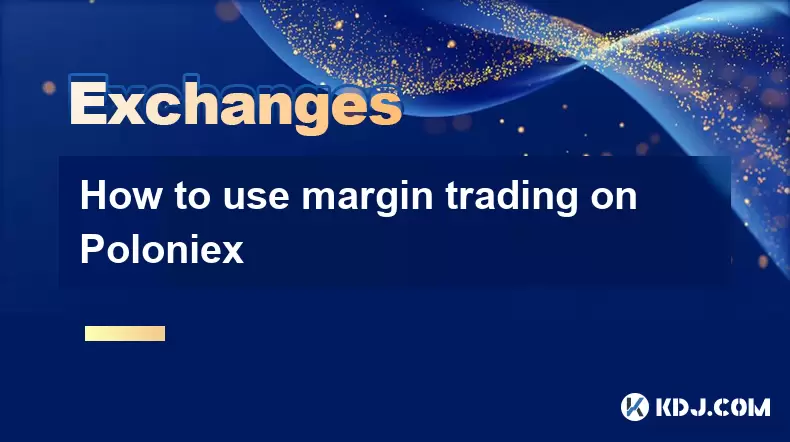
How to use margin trading on Poloniex
Aug 08,2025 at 09:50am
Understanding Margin Trading on Poloniex
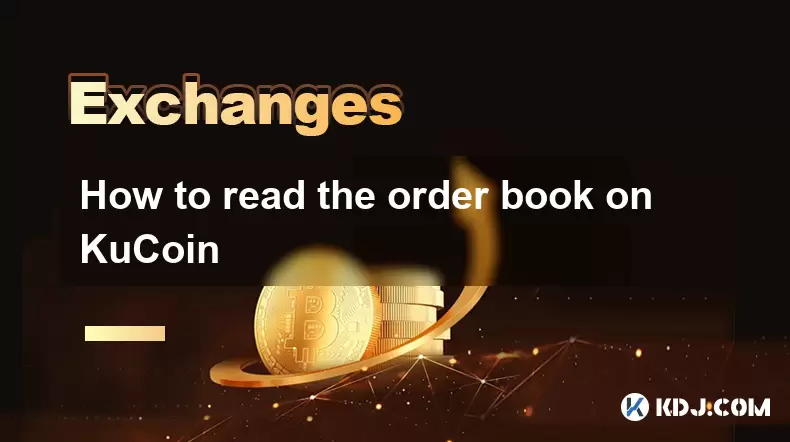
How to read the order book on KuCoin
Aug 10,2025 at 03:21pm
Understanding the Order Book Interface on KuCoinWhen accessing the order book on KuCoin, users are presented with a real-time display of buy and sell ...
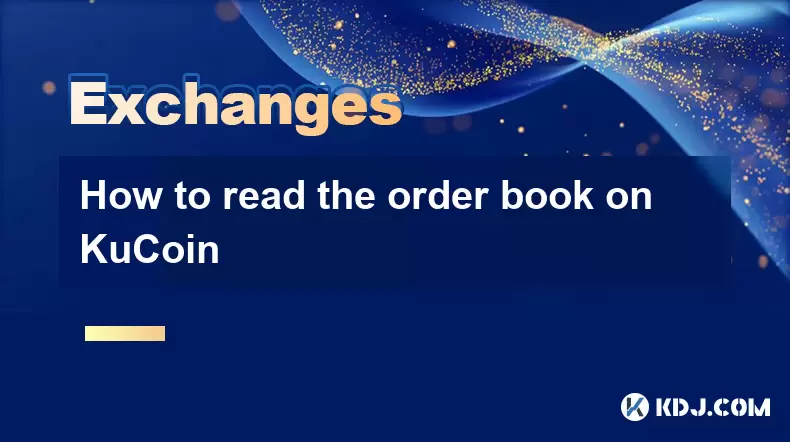
How to read the order book on KuCoin
Aug 12,2025 at 02:28am
Understanding the Basics of Staking in CryptocurrencyStaking is a fundamental concept in the world of blockchain and cryptocurrencies, particularly wi...
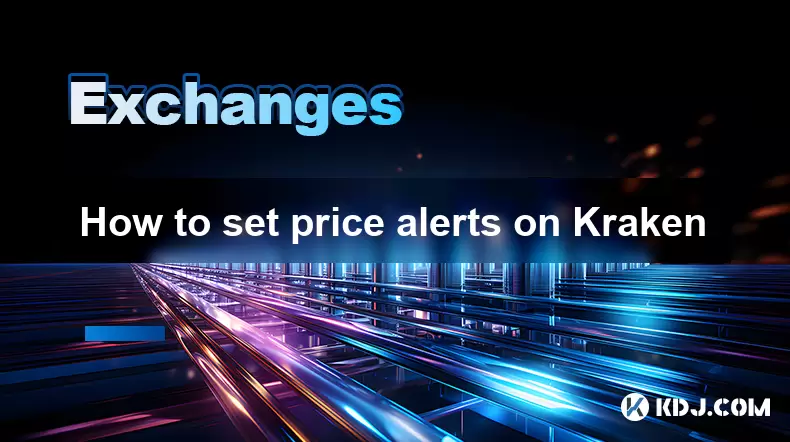
How to set price alerts on Kraken
Aug 11,2025 at 08:49pm
Understanding Price Alerts on KrakenPrice alerts on Kraken are tools that allow traders to monitor specific cryptocurrency pairs for price movements. ...

How to avoid high gas fees on Uniswap
Aug 13,2025 at 11:35am
Understanding Gas Fees on UniswapGas fees on Uniswap are payments made to Ethereum miners or validators for processing transactions on the blockchain....
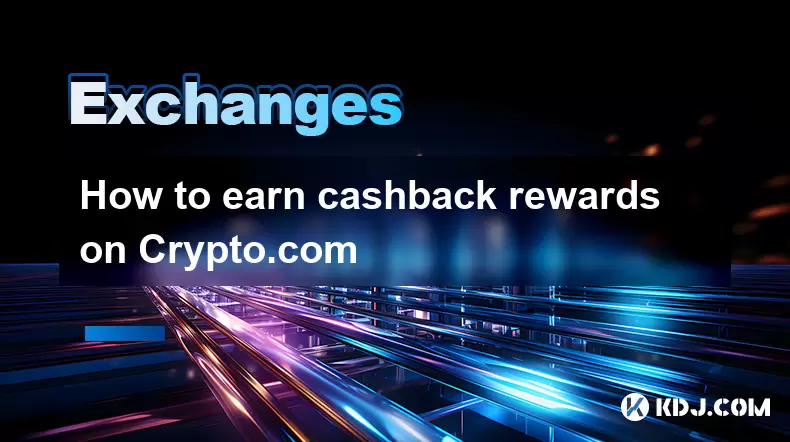
How to earn cashback rewards on Crypto.com
Aug 12,2025 at 02:08am
Understanding Cashback Rewards on Crypto.comCashback rewards on Crypto.com are a feature designed to incentivize users to spend using their Crypto.com...

How to use margin trading on Poloniex
Aug 08,2025 at 09:50am
Understanding Margin Trading on Poloniex

How to read the order book on KuCoin
Aug 10,2025 at 03:21pm
Understanding the Order Book Interface on KuCoinWhen accessing the order book on KuCoin, users are presented with a real-time display of buy and sell ...

How to read the order book on KuCoin
Aug 12,2025 at 02:28am
Understanding the Basics of Staking in CryptocurrencyStaking is a fundamental concept in the world of blockchain and cryptocurrencies, particularly wi...

How to set price alerts on Kraken
Aug 11,2025 at 08:49pm
Understanding Price Alerts on KrakenPrice alerts on Kraken are tools that allow traders to monitor specific cryptocurrency pairs for price movements. ...

How to avoid high gas fees on Uniswap
Aug 13,2025 at 11:35am
Understanding Gas Fees on UniswapGas fees on Uniswap are payments made to Ethereum miners or validators for processing transactions on the blockchain....

How to earn cashback rewards on Crypto.com
Aug 12,2025 at 02:08am
Understanding Cashback Rewards on Crypto.comCashback rewards on Crypto.com are a feature designed to incentivize users to spend using their Crypto.com...
See all articles

























































































